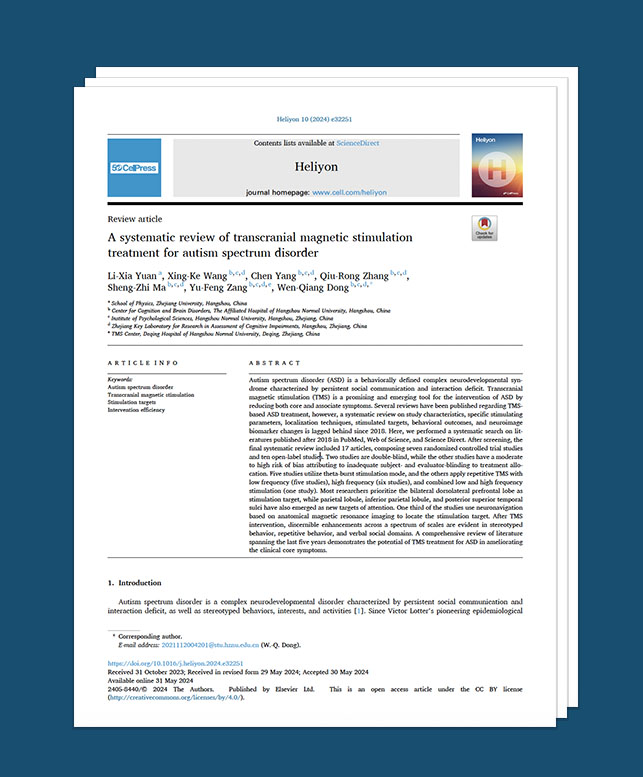
TMS Treatment for Autism: New Comprehensive Review Shows Promising Results

TMS is a key component of our MeRT treatment for autism spectrum disorder (ASD). Many scientific studies have shown the effectiveness of TMS in treating ASD symptoms. Yet no one has published a comprehensive review of these studies since 2018. Now, a scientific review published in April 2024 provides new information on the positive results achieved with rTMS.
As the review states, “The collective findings highlight the promising potential of TMS in the treatment of ASD.”
You can read the review in full here. However, we have summarized the key points below for you.
Key Points From The Comprehensive Review
- Challenges in social communication, interaction, and repetitive behaviors characterize autism spectrum disorder. Traditional treatments include behavioral therapies and medications. Yet these are often expensive, time-consuming, and may not address core symptoms.
- TMS can modulate brain activity (alter or regulate the electrical and chemical activity in the brain). This offers a novel approach to managing symptoms and is safe and well-tolerated, even in children.
- The review covered published studies from 2018 to 2023. It focuses on the studies’ characteristics, TMS parameters, stimulation targets, behavioral outcomes, and changes in the structure and function of the brain.
- The 17 studies reviewed included randomized controlled trials (RCTs) and open-label studies (in which the researcher and participants knew which treatment they were receiving).
- TMS treatment varied from once a week to five times a week, with durations from 1 to 18 weeks. Two common TMS modes used were repetitive TMS (rTMS) and intermittent Theta Burst Stimulation (iTBS). Our MeRT treatment protocol uses rTMS.
- TMS showed improvements in repetitive behaviors, stereotyped behaviors, and social communication skills. Various scales and assessments were used to measure these improvements.
- Several studies reported changes in brain activity and connectivity after TMS treatment. These observed changes suggest TMS can affect certain biomarkers associated with ASD.
- The review noted that using EEG guidance helped to accurately target specific brain regions associated with ASD symptoms. This is important, as our MeRT treatment is EEG-guided TMS, which makes it more effective than standard TMS treatments.

After TMS intervention, discernible enhancements across a spectrum of scales are evident in stereotyped behavior, repetitive behavior, and verbal social domains. A comprehensive review of literature spanning the last five years demonstrates the potential of TMS treatment for ASD in ameliorating the clinical core symptoms.”